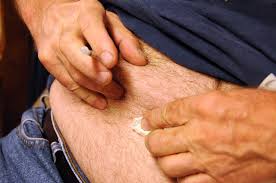Main Menu
Latest Blog Entry
User login
Diabetes and Exercise: What the experts say.
How Diabetes affects athletes
A few years ago, one of our interns (Fran Low ) cycled from Land’s End to John O’Groats to raise money for Diabetes UK (DUK) -the charity for people living with diabetes. As it is World Diabetes Day, here is a guest post from Profesor Ann Millward:
As a mum of an aspiring athlete (rugby union) and a Doctor looking after people with diabetes, I spend a lot of time thinking about training, keeping fit, preventing diabetes as well as treating it.
So, what is all the fuss about?
The two main forms of Diabetes
 Type 1 diabetes (T1DM) and Type 2 diabetes (T2DM).
Type 1 diabetes (T1DM) and Type 2 diabetes (T2DM).
T1DM is less common (~20/100,000 new cases per year) but generally affects young people and is caused by the body’s immune system damaging the insulin producing ß cells of the pancreas.
The only way to manage this is to take insulin in one form or another by injections under the skin 4 (or more) times a day to balance the body’s sugar (and fat) levels.
To do this, people with diabetes need to take account of what their blood sugar is at the time (lots of finger pricking blood tests), how they are feeling, how much they intend to eat (in terms of carbohydrates) and how much they intend to do (to burn off).
All of this is eminently doable, but it does take great motivation and care and for those doing sport, it is just a bit harder! It’s a bit like doing a sports plan every day of your life but also having to do blood tests and adjust what you are eating as well.
T2DM affects older people and comes about because the body is resistant to its own insulin, which does eventually run out.
Not everyone with T2DM is overweight or a couch potato, but it is true to say that everyone with T2DM will benefit from keeping fit and watching what they eat – because it improves the body’s sensitivity to insulin – and that goes for all of us!
What is a bit worrying is that the number of new cases per year is rising (~5% of our local population) and younger people now are developing it. We think that this increase is related in some way to the way we live and have lived over the past few decades, eating less healthily and exercising less.
On top of that, studies have shown that, in people who have pre-diabetes by exercising regularly and eating a better diet, diabetes can be prevented by 58%.
Preventing and managing Diabetes
 So, exercise and diabetes are definitely interlinked. On the one hand, regular cardiovascular exercise will improve our body’s sensitivity to insulin and, even if we have a family history or early warnings of diabetes, may prevent the condition – and the cardiac disease that can accompany it.
So, exercise and diabetes are definitely interlinked. On the one hand, regular cardiovascular exercise will improve our body’s sensitivity to insulin and, even if we have a family history or early warnings of diabetes, may prevent the condition – and the cardiac disease that can accompany it.
On the other hand, regular exercise is certainly a vital part of managing the condition whether you have T1DM or T2DM because better glucose control means fewer long-term problems of diabetes. Technology has improved greatly so that elite athletes can perform to their potential – if they get the right advice and support.
However, there is still a huge amount of research needed to be able to prevent the disease and treat it better, much of it taking part in the South West.
So, good on you Fran and all those who sponsored her. Make every mile count for Diabetes UK. People living with and working with diabetes certainly need your support to make a sweeter future for those with diabetes.
Prof Ann Millward MA MSc MD FRCP MILT
Associate Professor (SL) in Clinical Diabetes
Consultant in Diabetes & Endocrinology
Director SW Peninsula Diabetes Research Network
Peninsula College of Medicine & Dentistry,
Plymouth PL6 8BU
Useful websites:
http://www-drn-nihr-ac-uk.cc.ic.ac.uk/lrn/swp/newsletters/SWP%20Newsletter%202010%2001.pdf
Client Testimonials
During the build up to the Beijing Paralympics I was fortunate to be able to train with Excelsior. During this time James delivered a specific eleven month training block to me starting from base fitness up to more complex circuits and exercises. James would always take part in our sessions and this really helped motivate me, as we would push each other to achieve during the sessions. James was flexible around my shift work and would always answer any questions I had, however daft they sounded!
More


Comments
[…] athletes especially are at increased risk of obesity and diabetes compared to 20 years ago. Part of coaching is the education process of young athletes (we do this […]